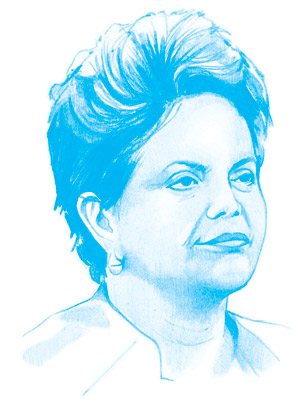
I once saw a photograph of Dilma Rousseff at age 22. She was standing in front of a 1969 military tribunal made up of judges hiding their faces with their hands. She exuded defiance. The roles appeared to be reversed: it was Dilma who was indicting not only the military but an Establishment complicit in the injustice of excluding the majority from power during the two-decade rule of the generals.
The woman I got to know in 2003, when she became a minister in the government of then President Luiz Incio Lula da Silva, possesses the same commitment as the girl in that picture.
She and I share many personal experiences: the drive that comes from our immigrant heritage, youthful activism and militancy and the challenges faced by women as they try to grow in a space dominated by men. And we agree that social inequality is the greatest problem facing our countries.
Historically, what was "national" in Latin America used to run counter to the interests of the other nations in our region. Today, with the leadership of Dilma Rousseff, we see a Brazil convinced that its national interest is absolutely linked to the interests of its neighbors.
Fernández de Kirchner is the President of Argentina